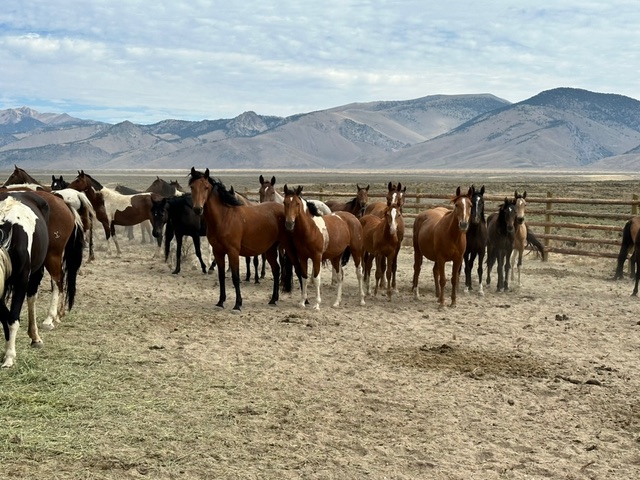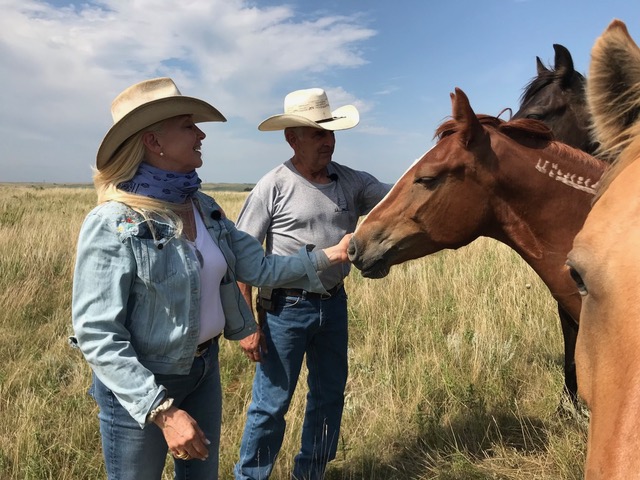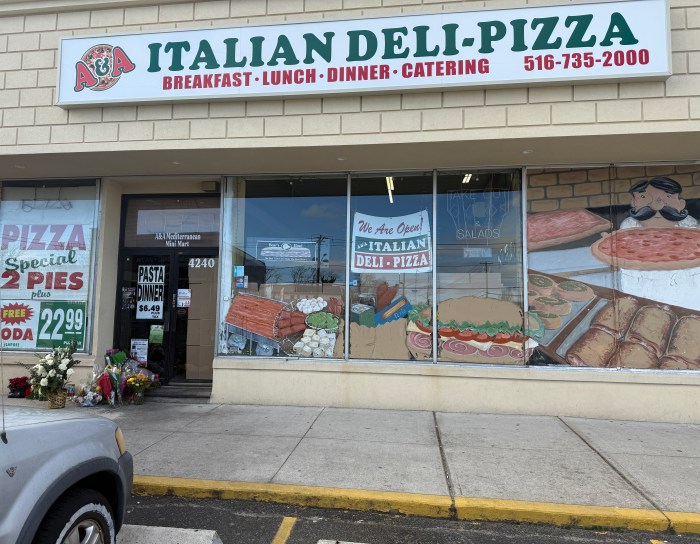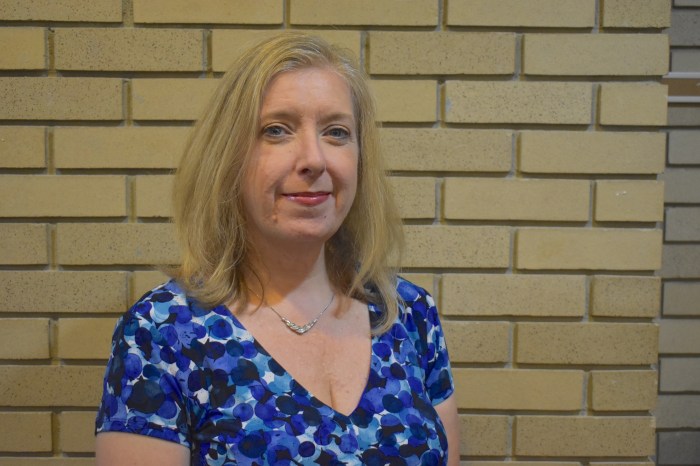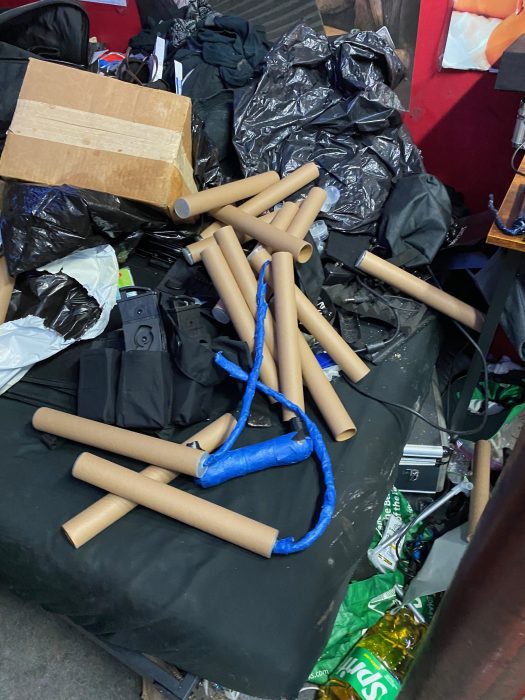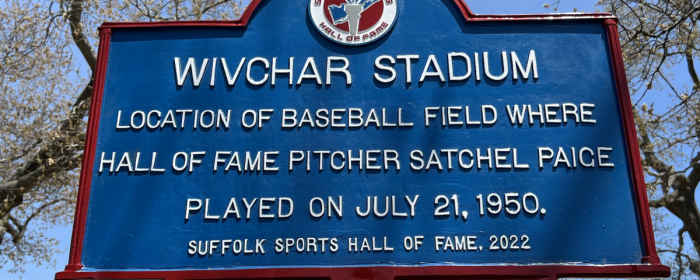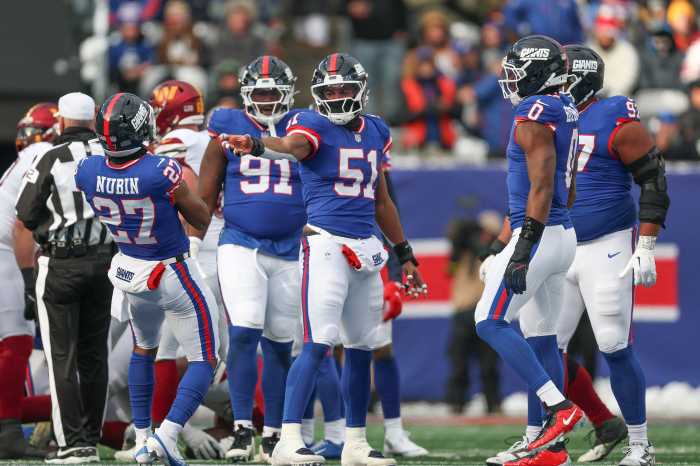As a lifelong animal lover, advocate, and author, Manda Kalimian sprung into action when she learned about the mistreatment and slaughter of wild horses. Just this month, she said she saved 11 pregnant horses in Oklahoma from slaughter.
“I’m an animal lover, and I grew up riding horses,” Kalimian said.
Kalimian, an Old Westbury native and East Norwich resident, started her mission over a decade ago when a sanctuary in Eastern Long Island contacted her about four horses ready to be sent to slaughter.
After learning about the auction industry, Kalimian purchased the horses before they were sent to the kill pen, rehoming three of them to a sanctuary in North Carolina and bringing in one to her farm in East Norwich.
Inspired by her rescue and frustrated by the industry, Kalimian started Rewilding America Now, an organization that works to recreate the natural environment in public and private lands and appropriately rehome wild horses.
The group has rehomed approximately 300 horses in its mission to solve the “wild horse crisis,” Kalimian said.
The public lands where wild horses roam are overseen by the U.S. Bureau of Land Management, which permits the land for multiple uses, she said. But Kalimian said that between recreation, fracking, mining, hunting and cattle grazing permits, there is “not a lot of room for wildlife.”
Kalimian said the bureau has deemed horses “invasive” and “destructive,” even though the animals evolved in North America. The Wild Free-Roaming Horses and Burros Act of 1971 said horses are an “integral component” of the natural system.
Kalimian said permitted mining, drilling, and fracking practices harm the land and wildlife, and continual grazing and poor management have overtaxed the land. She said the government is “mismanaging” the range, forming a “disparity” in permitting.
“Where is the balance for wildlife?” she said.
But more than its mismanagement of government lands, Kalimian said, the federal government is using taxpayer dollars to round up wild horses, a million-dollar practice that separates horses from their herd and sends them to the kill pen.
“You, as a federal taxpayer, are paying $5 a head per day for almost 80,000 horses in holding facilities,” she said. “Is that the best use of our money?”
Kalimian said the government says the horses are to be rounded up due to “overpopulation,” but the animals are coming off the range healthy. She said horses are adopted and sold to meat processing plants and slaughterhouses, and they are then brought to auction houses.
“It has become its own industry,” she said.
She said horses are posted online with a “kill date,” and if they are not purchased in time, the animals are brought over the Canadian and Mexican borders to be slaughtered.
This month, Kalimian purchased 11 pregnant horses from a kill pen in Oklahoma. Through her organization, they will be set free on large parcels of land as part of a rewilding habitat.
“We are saving wild horses that are rounded up,” she said.
Rewilding America Now partners with a private land refuge in Idaho and two ranches, Brownotter and Silbernagel, to rehome wild horses and rewild the land.
Rewilding is the act of “recreating an environmental system,” Kalimian said. Horses are especially productive in the natural system because they eat grass and make nutrient-rich manure, she said.
“Let them be a part of the natural system to which they are originally from and help us recreate biodiversity with healthy landscapes,” Kalimian said.
Kalimian said that science is a “key and critical component” of an organization’s work. She said the foundation uses research and data to guide its work and offer educational courses. Kalimian said the organization offered its first experiential class at Cornell University last fall.
“Saving these horses is one component of the story,” she said. “But it’s tied in and intertwined with the environmental story.”
But Kalimian rewilds more than the land out West.
At her own 16-acre farm in East Norwich, Kalimian houses her own horses, all of which are retired show horses. She said she rewilded the area with native plant species, bees, and birds to pollinate and make a difference.
Kalimian said it’s her “rewilding space” at the “local level.”
“When we let nature do what nature knows how to do… the system comes back to life,” she said.
For more information, visit rewildingamericanow.org.
Read More: Long Island Horse Rescuer Manda Kalimian Was ‘Born to Rewild’
